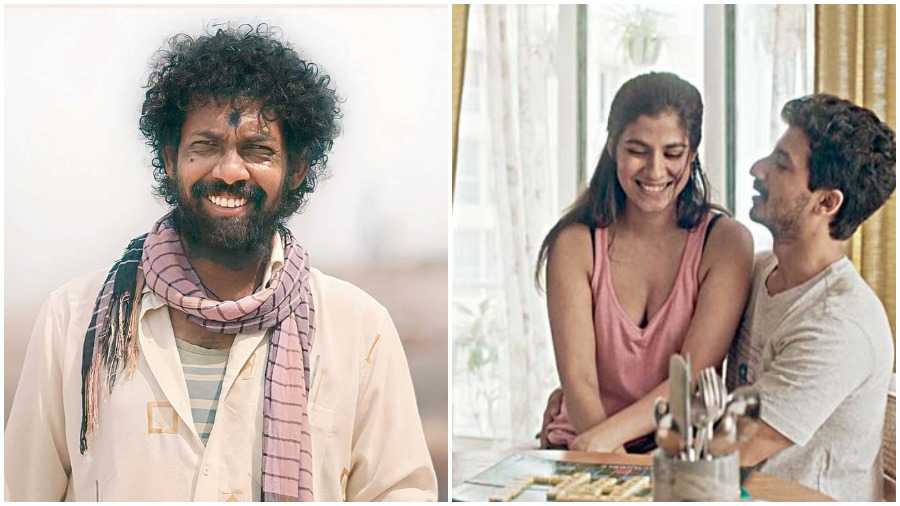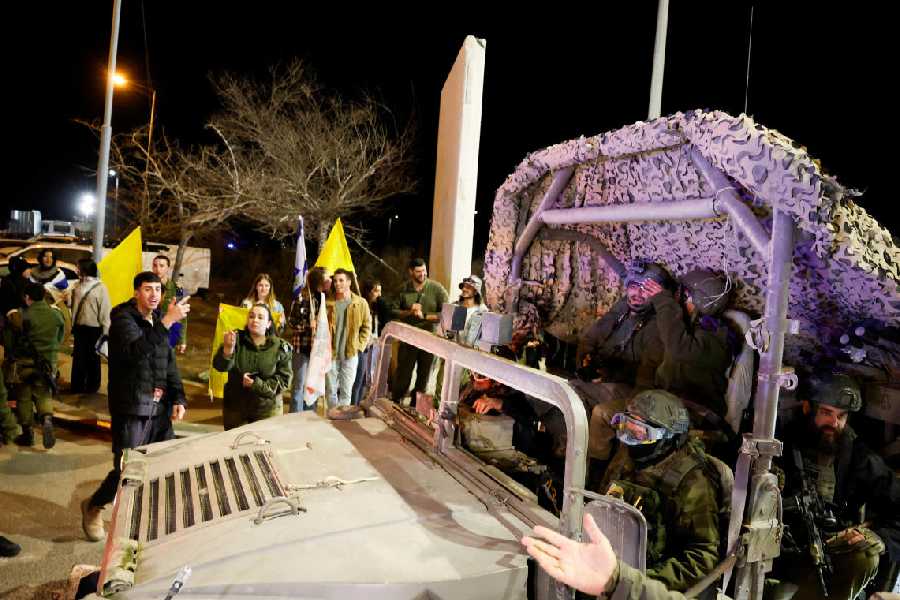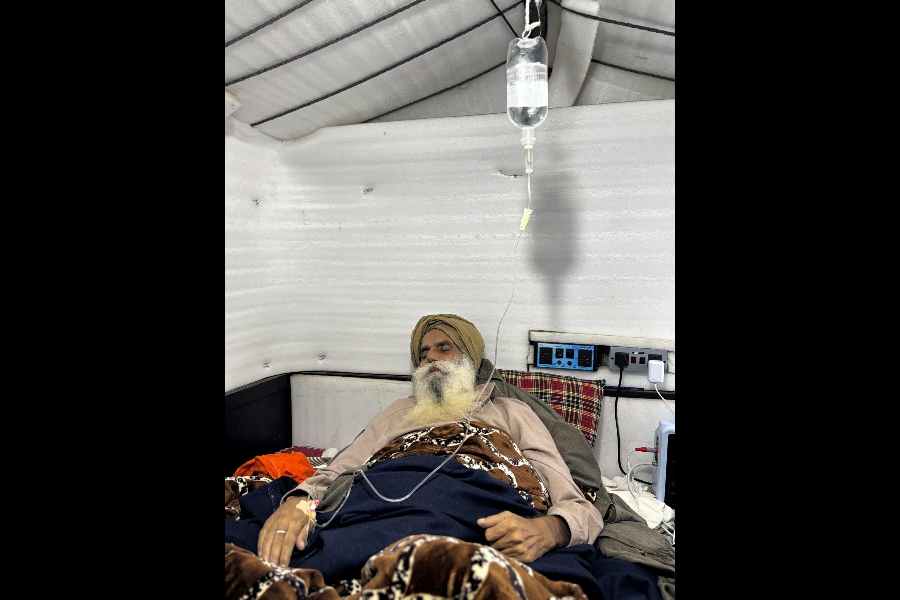What do you want first — the good news or the bad? Given the times, let’s go with the bad first and cushion it with the good later. Well, the downside to Unpaused: Naya Safar is that the second anthology in the series — the first of which was conceived in 2020 when Covid-19 had just come calling — signals that the pandemic, almost two years later, is still pretty much on, if not worse, giving the makers more fodder to build their stories around. The good news is that Naya Safar is a vast improvement on its predecessor, delivering at least two solid stories and a couple of above-average ones.
And that’s, quite ironically, also because the second instalment, by and large, recognises the enormity of this history-marking episode and how its ravaged mankind, especially the unprivileged. The heartwarming stories are there are all right, like they were in the first, but it’s the hard-hitting ones that well and truly stand out.
Vishaanu, a scathing look at the migrant crisis that hit the country during the first lockdown and seen through the lens of the emotional and economic ramifications of the class divide, was the stand-out short of the first instalment. Our pick from the latest five-short anthology, now streaming on Amazon Prime Video, is also one that looks at the schism of class and caste, but is not built entirely around it. Nagraj Manjule — whose movie-making ethos is defined by how he underlines the ugly underbelly of the caste divide, as evinced in his highly acclaimed films Fandry and Sairat — directs Vaikunth, and also plays its protagonist. Vikas (Manjule) works at Vaikunth, meaning ‘heaven’, a crematorium. Set in the devastating second wave that snatched away so many lives, Vikas mechanically goes about his caste-dictated job of cremating the bodies of Covid-19 victims that arrive in droves every day, even as he grapples with his own father fighting the virus in hospital.
Poignantly written and powerfully framed — an overhead shot of the burning pyres, recalling the late Danish Siddiqui’s moving frame, is seared into memory — Vaikunth is a stark reminder of how the last two years have pushed the marginalised even beyond the margins. Sharply edited and acted, Vaikunth’s blistering social commentary compels us to sit up and take notice, with the short ending on a note — those penultimate few minutes are among the best we have watched in recent times — that holds out hope.
The other standout is War Room, which is essentially a one-actor show. Geetanjali Kulkarni has the ability to convey so much even when her face is half covered by a mask, like it is in this short directed by Ayappa KM. A teacher who now functions as an emergency worker in a Covid-19 ‘war room’, Kulkarni’s Sangeeta finds herself conflicted between being a mother wronged seeking some form of revenge and a dedicated pandemic warrior, when a voice at the other end of a call she attends to makes a desperate plea for a hospital bed. Both grim and grimy — the grey frames reflect Sangeeta’s moodboard — War Room grabs our attention and holds on to it till the end, even with its open-ended curtain call. Not everything in life is about connecting the dots and arriving at a definite conclusion. This is a reminder of that.
Ruchir Arun’s Teen Tigada — frontlined by Saqib Saleem, but truly held together by a humorous and heartfelt act by Ashish Verma — is a short brimming with possibilities. Three thieves —- Sam Mohan brings up the rear — loot a truckload of goods and take refuge in an abandoned factory, but then the lockdown strikes. Initially clawing at each other, they make peace finally, with the short focusing on how bonding between strangers has been one of the by-products of the times we are living in. Teen Tigada, however, struggles to hit the high notes, and eventually becomes one of those things you hardly remember when it ends.
The least impressive is Gond Ke Laddoo, a short that tries a little too hard to tick the feel-good box. Everything in this short, directed by Shikha Makan, and telling the story of a mother (played by Neena Kulkarni) who masters technology to courier across a box of laddoos to her daughter living in another city during the pandemic, feels carefully constructed and even contrived. Despite a luminous act from Darshana Rajendran, this one is the weakest of the lot.
Lacking in novelty but perhaps the most relatable short in Naya Safar belongs to Nupur Asthana who directs Priyanshu Painyuli and Shreya Dhanwanthary as a young couple in a short named, well, The Couple. The beats are familiar in this short, which shows the two going through the motions of working from home and finding time for each other at the end of the day, over a shared bowl of noodles and some TV time. But their daily round of playing scrabble gives way to days and nights of squabble when she is unceremoniously laid off. Gender-driven expectations, lack of sensitivity and a breakdown of communication make them finally wonder, ‘Why are we even together?’ till they eventually pull it back just in the nick of time. This is the ‘Dalgona Coffee’ of the anthology (there’s even a mention of that viral trend somewhere). It’s feel-good and well acted. And well, that’s just about it.
An anthology always stands the risk of being uneven, and Naya Safar is no different. But this is perhaps one of those recent rare ones with more hits than misses. We look forward to Season 3 — only if it talks about how we put the pandemic behind us.










